▶ By K. Connie Kang
The Los Angeles Times
I can’t walk past the canned goods section of my supermarket without remembering the Korean War.
The neatly stacked cans of corned beef hash transnsport me to my native Korean peninsula, where I lived through the war as a 7-year-old.
Corned beef hash was more precious than gold. Whenever my resourceful grandmother managed to acquire a big can of it on the black market, she invited everyone around us to share a “special American’’ meal. She stretched it by mixing it with rice, stuffing morsels in dumplings and putting just enough of it in soups to make the otherwise thin broth flavorful. Its smell and taste saturated me with a sense of well being.
Today in Los Angeles, I still bring home corned beef hash one can at a time. I partake of it prayerfully as a miraculous gift of faith and love amidst adversity.
That can of hash, as every detail of the Korean War, is etched like a newsreel inside my head. The war changed not only the life of my family, but the lives of the more than 1 million people of Korean ancestry who live in America. Awake or asleep, our wish is reunification of the two Koreas and peace on the rabbit-shaped peninsula, which hasn’t lived up to its name— the Land of Morning Calm— for more than a century.
That can of hash reminds me, too, of how long the destiny of 75 million ethnic Koreans worldwide has been intertwined with American foreign policy. President Theodore Roosevelt started it in a secret deal with Japan in 1905 by agreeing to give Japan control over Korea and Manchuria. In exchange, Japan agreed not to interfere with the U.S. presence in the Philippines. Roosevelt’s decision set the stage for Japan’s annexation of the Korean peninsula in 1910, followed by a 35-years of colonial rule designed to make Koreans into second-class Japanese.
Japan’s defeat in World War II meant Korea’s liberation. But no sooner Japanese forces surrendered, than the peninsula was split in half— under the influence of the Soviet Union in the North and the United States in the South. Cunning Soviet leader Joseph Stalin outsmarted ailing President Franklin D. Roosevelt at Yalta and Potsdam conferences— Koreans paid the price.
Today, long after the Soviet Union is gone, two Germanys are one, and overseas Vietnamese visit their homeland. Yet the Cold War continues on my peninsula, an armed camp with more than 1.5 million soldiers, including 37,000 Americans, ready to fight on a moment’s notice.
I went to church on the Sunday the war started, June 25, 1950, a warm, clear day in Seoul. I accompanied Grandmother and Mother, none of us aware that North Korea had made a surprise attack on the South hours before. After lunch, I went with Mother to a neighborhood dressmaker. My father, Joo-Han Kang, who taught English at Seoul National University, had left earlier that year on a Fulbright fellowship to study at the University of Michigan. He was due to return on July 10. We ordered new outfits to wear to the airport.
Monday, Mother heard it on the radio: The North Korean Peoples’ Army was headed toward Seoul. We rushed to break the news to Grandmother, who sold secondhand American uniforms, sweaters, jackets and socks at the nearby East Gate Market. I wondered if I would ever see Father again.
Grandmother’s face turned ashen. “What shall we do? What shall we do?’’ she muttered. I had never seen her look so frail. She was a strong woman who had left her home, business and friends in North Korea to get away from Communists because she knew we would be persecuted for our Christianity. My great-grandfather, Bong-Ho, a Presbyterian elder, had established 17 churches. Risking her life, she had made six round trips across the 38th parallel that separated the North from South between 1945 and 1947 to bring her relatives to the South. I was three years old when I crossed the 38th parallel on my mother’s back in May, 1946, with Grandmother guiding our way.
By Wednesday night, June 28, we heard the rumbling of cannons from afar. Within days Russian tanks arrived in the city center. Soon, we saw North Korean Peoples’ Army soldiers in our relatively quiet neighborhood in Shindang-dong.
Mother and Grandmother were shocked to discover so many Communists and sympathizers in the neighborhood. People we never suspected began to form block committees, whose duty was to keep track of people, their movements and activities. Going door to door, they drafted able-bodied adults for work assignments.
By now the two women felt it was a blessing that Father was in America. But they worried about my aunt’s husband, Chang-Kyu, and our next door neighbor, Teacher Song, both in their 30s, refugees from the North. They decided that our home would be the best place to hide them.
Uncle Chang-Kyu’s hiding place was the space underneath the maru, or enclosed veranda, over which we kept a flower-patterned straw mat. Teacher Song’s refuge was the crawl space above the ceiling joists. Access to it was through a closet in Father’s study— impossible for an outsider to detect.
My assignment was to keep the household apprised of any suspicious people in the neighborhood. A code system was established to communicate with the men: A rapid series of taps with a laundry stick meant danger; two taps meant relax; four taps meant meal time. I felt proud when the men told me that their lives depended on me.
As the weeks dragged, it became clear I wouldn’t see Father for a long time. His letters stopped coming. As the North Korean Peoples’ Army occupied Seoul, schools closed and the shiny silver American B-29s appeared overhead to attack their factories and supply depots. During air raids, I ran to a musty basement room, where we kept old quilts and pillows. Once, American pilots inadvertently bombed a school where refugees had gone for shelter. Many civilians died. Korean life was cheap.
In late July, three Communist students came to our home and demanded that they be given a room to stay. With Father gone, we were in no position to refuse. Mother offered the room by the kitchen, which had been our maid’s room.
The students – all girls — invited me to their room and tried to indoctrinate me. They told me about the virtues of Communism and instructed me to address people as “comrade.’’ They talked about the “evil Americans—imperialist Americans—who were killing innocent civilians’’ and predicted a “people’s victory.’’
“We will kill those American bastards like this,’’ one said, demonstrating with a bamboo spear. She looked ferocious.
The students taught me several revolutionary songs,too, including the “Song of General Kim Il-Sung.’’ They did a good job: I can still sing it by heart. In the evenings, they joined different neighborhood committees to recruit women for evening drills, rehearsing those motions of bayoneting Americans.
We lived in perpetual fear that the students or intruding North Korean soldiers would find the two men in hiding. One afternoon, when scouring the neighborhood, North Korean soldiers stopped and went through the entire house. They even went down to the bomb shelter and shook pillows. Another time when soldiers showed up looking for food, Mother and I heard the ceiling creak when Teacher Song shifted his position in the crawl space.
As the summer wore on, our supply of rice dwindled. We were sharing it with the resident Communists, relatives and friends. Grandmother hid rice in small earthen jars in different places throughout the house to discourage the students from taking so much. She also put rice in small bags inside pillows, stuffed with rice chaff. By August, the only side dish we had with rice, mixed with barley to stretch it, was cabbage dipped in hot bean-paste sauce.
The pessimistic news from the war front spread by word of mouth. The first Americans were U.S. occupation troops from Japan, airlifted out of a soft life; they were no match for the well-trained North Korean soldiers, bred on hardship. By late summer, our side had lost all but the southern tip of the peninsula. I would look at Father’s picture in his study, making sure I could remember his face.
In September, we heard the encouraging news: The U.S. Marines were coming. In the distance, cannon fire rumbled. Grandmother and Mother said United Nations forces under Gen. Douglas MacArthur’s command would overtake Seoul. Once that happened, the Allied forces would go all the way up north to the Yalu River and free the peninsula and we would be able to return to our home in the North.
And MacArthur’s audacious amphibious assault Sept. 15 on Inchon did work. Within two weeks, United Nations troops took over the capitol building and hoisted the blue UN flag over it. Elated Seoulites, waving and applauding, ran outside and greeted the soldiers arriving in their tanks and jeeps. Their triumphant entry into Seoul coincided with Chusok, the Harvest Moon festival, so Grandmother gathered the rice she had hidden and made rice cakes for a double celebration. Victory was at hand. Father could come home to the North directly from America. I thought I’d burst from the suspense.
South Korean forces crossed the 38th parallel and occupied two major cities—Hamhung, my mother’s hometown, and nearby Hungnam— while UN forces took Pyongyang, the North Korean capital, and headed all the way north to the Yalu.
Suddenly, the situation reversed itself. Chinese “volunteer’’ soldiers joined the North Koreans in mid-October. The furious attacks and counter-attacks resulted in one Allied retreat after another until the Chinese crossed the 38th parallel on Christmas Day. On New Year’s Day, 1951, the Communist offensive into the South began, and on Jan. 4, UN forces evacuated Seoul.
This time we had to leave. A war with North Korea was one thing, but fighting China was unthinkable. So, in early January, when North Korean troops were about to overrun Seoul for the second time in less than seven months, we finally decided to depart.
I dwelled on the possessions I had to leave behind. I thought about my jewelry box, painted in yellow with a floral pattern with a mirror in front, that looked like a miniature dresser. My mother had given it to me for Christmas that year. I hid it in the attic above Father’s study. Perhaps, when I returned to Seoul, I could retrieve it.
We could not travel together as a family because there was no available transportation for all of us. So Mother and I found passage on a truck to the train station in Taejon, 90 miles south of Seoul, where we would meet Teacher Song’s family. Whoever reached Taejon first was to wait at the station. There was room only for one adult on the truck, so I sat on my mother’s lap. Grandmother and my aunt went separately with another family and headed straight to Pusan. We agreed to look for each other in a refugee settlement center. My aunt’s husband and Teacher Song had been conscripted as laborers to help move ammunition.
From Taejon Station we took the last “freedom train’’ to Pusan. The only available spot was on the rooftop. A man tied a rope around my middle and threw the other end up to a man standing on the top of the train, who lifted me up as if he were drawing a bucket of water from a well. Mother climbed up a small staircase at the back of the coach with the help of the young man who had pulled me up.
For the second time in my life, we left everything behind. Our entire possessions consisted of an 80-pound sack of rice and a bundle containing kitchenware and a few pieces of clothing. We secured ourselves and our belongings to the train with a rope clear across the width of the rooftop.
The “freedom train’’ traveled through a freezing night. The winds from Sibera whipped through our layers of clothing, sewn out of olive-green U.S. Army blankets. We were afraid we would freeze to death. But the next evening, Mother and I were reunited with Grandmother at a packed refugee center in Pusan.
It was dinner time. The smell of people and food permeated the air. Makeshift partitions of sheets and rags separated the living quarters of different families. Children slept curled up like cats, but their parents dozed sitting up, leaning their weary backs against their bundles.
Grandmother, resourceful as ever, began peddling goods in a portable basket on the street within days after our arrival in Pusan.
South Korea’s second largest city was crowded and dirty. Street urchins in tattered clothes with gaunt faces and lice in their hair were everywhere. Sometimes they ran after American jeeps, hoping to get a piece of chewing gum or a candy bar. The American soldiers were not always kind, and sometimes shouted “goddamn’’ at them. The children repeated the word.
Because of a severe water shortage, we sometimes cooked food in salt water from the sea. We did our laundry with sewer water from a ditch that came out of a public bathhouse. One nightly routine was picking lice.
I attended a school for refugee children in pitched tents where straw mats served as doors and the playground was a muddy hill. During our music class we learned songs about the bravery of South Korean and United Nations soldiers. We sang for wounded soldiers in hospitals.
I would not be in Korea to see the signing of the armistice ending the fighting in July, 1953.
Mother and I escaped to Japan on a small fishing boat on a moonlit night in October, 1952 to reunite with Father, who had come to Tokyo from New York to work for MacArthur’s United Nations Command.
Arrested and detained for illegally entering Japan, I became a jailbird at age nine. After considerable expense, a member of the Japanese parliament helped us get permanent residency, and we had a semblance of stability.
Attending an American school in Tokyo, I, like my father before me, fell in love with the English language and got the romantic notion of becoming a newspaperwoman in America. Days after my earning a master’s degree from Medill School of Journalism at Northwestern University, I was headed for Rochester, N.Y., to work as a reporter at the Democrat & Chronicle. In the summer of 1963, I was a curiosity. Whenever I went out on assignments, my interviewees wanted to interview me! My parents immigrated to the United States from Japan in 1975 and settled in San Francisco. The City by the Bay, where Korean independence fighters raised money to try to free their homeland from Japan’s yoke, gave my parents their home away from home. Father died two years ago and Mother last year, their hope of going home unfulfilled.
Now it is up to me. I still have rusty keys to our ancestral home.
스마터리빙
more [ 건강]
[ 건강]이제 혈관 건강도 챙기자!
[현대해운]우리 눈에 보이지 않기 때문에 혈관 건강을 챙기는 것은 결코 쉽지 않은데요. 여러분은 혈관 건강을 유지하기 위해 어떤 노력을 하시나요?
 [ 건강]
[ 건강]내 몸이 건강해지는 과일궁합
 [ 라이프]
[ 라이프]벌레야 물럿거라! 천연 해충제 만들기
 [ 건강]
[ 건강]혈압 낮추는데 좋은 식품
[현대해운]혈관 건강은 주로 노화가 진행되면서 지켜야 할 문제라고 인식되어 왔습니다. 최근 생활 패턴과 식생활의 변화로 혈관의 노화 진행이 빨라지고
사람·사람들
more많이 본 기사
- [‘로드 레이지’ 한인 피살 현장 상세 상황] 끼어들기 시비가 비극으로… 차에서 내려 “쏴봐라” 언쟁
- 크리스마스 대형 폭풍… 침수·산사태 대비 ‘비상’
- [이민 단속] 여권 소지 시민권자들 증가
- [이민 단속] 새해에도 더 공격적 단속
- 연방대법, 시카고 주방위군 투입 ‘기각’
- [성탄절 문 여는 곳은] 코스코·월마트 닫고… CVS는 영업
- 취업비자(H-1B), 고연봉자 우선 발급
- 가난해서 흙 팠는데… ‘다이아’ 캤다
- 두 손 모아 성탄기도… “온 세상에 평화를”
- MC몽, 차가원 회장 충격 불륜 부인.. “채무 120억 당연히 이행”
- ‘마약 혐의’ 남양유업 창업주 외손녀 황하나 경찰에 체포
- 엡스타인 자료 추가 공개… “전용기에 트럼프 8번 타”
- 트럼프 “마두로 물러나라” 최후통첩
- 차기 대선 선호도… 공화 ‘밴스’ ·민주 ‘뉴섬’ 선두
- 온라인쇼핑과 반품, 그리고 그 이후
- 한미가정상담소 미술심리 힐링
- 불체자 자진출국하면 지원금 3배로 ‘3천불’
- ‘파워볼’ 열풍 계속… 오늘 잭팟상금 17억 달러
- 트럼프의 새 독트린 “미국을 다시 왜소하게”
- 정동원, 내년 2월 23일 해병대 입대..전역 예정일은 27년 8월 22일
- 퀸, 51년 전 ‘미발표곡’ 공개 녹음 뒤 앨범에 안 담긴 곡
- “ATM기 사용하기 겁나네”
- 미 해군 군함 명칭 전통 깬 ‘트럼프급 전함’
- “트럼프 정부, 망명신청자 8천명 과테말라 등 제3국 추방 추진”
- ICE 홈디포 급습 한인 체포
- 한국외대, ‘김재한 강의실’ 헌정식
- 내년 OC서 첫 이사회 및 신년회
- SD 해군장병들 받을 보너스 2억여 달러 지역 경제 도움
- 해외서도 극과극 반응’대홍수’, 넷플릭스 글로벌 1위 차지”SF 걸작 vs 최악”
- [미국은 지금] MAGA의 분열, 예견된 균열의 시작
- 지평 넓히는 K-푸드… 라면·김치 이어 과자·스낵 가세
- [수요 에세이] 삶이라는 배를 타고
- “국악 아름다움 나눠요”
- “은·로빈후드·인공지능 주식에 집중 투자”
- [남가주 6개 은행 전국 예금 현황] 1억달러 이상 예금고 지점 99개
- “경쟁력ㆍ맞춤형 금융 솔루션 제공”
- “샌디에고와 100점짜리 계약 체결… 마차도와 호흡 기대”
- 먹는 비만약 경쟁 치열 ‘위고비’ 미국 판매승인
- [미라클터치] “겨울철 건강 회복, 뼈에서 시작된다”
- 발렌시아 한국학교 한국어 스펠링비 성료
- [지평선] ‘인간GPT’ 환각의 부작용
- ‘글루텐 불내증’ 셰프가 빵집을? 고객 향한 온기 담은 바게트
- 잇단 트럼프 때리기에도…파월, 지지율 3부 요인중 최고
- 한인사회 등 봉사 앞장 SD 무용협회 종강식
- 미, 외국산 드론·부품 수입 전면 금지
- 한국계 타자 레프스나이더 시애틀과 625만달러 1년 계약
- MD 로우스 직원, 지게차로 70대 노인 살해
- 뚜레쥬르, 뉴욕 맨해튼에 직영 ‘매디슨 스퀘어 파크점’ 열어
- 금값, 1979년 이후 최대 연간 상승
- ‘100억달러 수주’ 한화오션, 내년 FPSO 시장 노린다
1/5지식톡

-
 미 육군 사관학교 West Poin…
0
미 육군 사관학교 West Poin…
0https://youtu.be/SxD8cEhNV6Q연락처:wpkapca@gmail.comJohn Choi: 714-716-6414West Point 합격증을 받으셨나요?미 육군사관학교 West Point 학부모 모…
-
 ☝️해외에서도 가능한 한국어 선생님…
0
☝️해외에서도 가능한 한국어 선생님…
0이 영상 하나면 충분합니다!♥️상담신청문의♥️☝️ 문의 폭주로 '선착순 상담'만 진행합니다.☎️ : 02-6213-9094✨카카오톡ID : @GOODEDU77 (@골뱅이 꼭 붙여주셔야합니다…
-
 테슬라 자동차 시트커버 장착
0
테슬라 자동차 시트커버 장착
0테슬라 시트커버, 사놓고 아직 못 씌우셨죠?장착이 생각보다 쉽지 않습니다.20년 경력 전문가에게 맡기세요 — 깔끔하고 딱 맞게 장착해드립니다!장착비용:앞좌석: $40뒷좌석: $60앞·뒷좌석 …
-
 식당용 부탄가스
0
식당용 부탄가스
0식당용 부탄가스 홀세일 합니다 로스앤젤레스 다운타운 픽업 가능 안녕 하세요?강아지 & 고양이 모든 애완동물 / 반려동물 식품 & 모든 애완동물/반려동물 관련 제품들 전문적으로 홀세일/취급하는 회사 입니다 100% …
-
 ACSL 국제 컴퓨터 과학 대회, …
0
ACSL 국제 컴퓨터 과학 대회, …
0웹사이트 : www.eduspot.co.kr 카카오톡 상담하기 : https://pf.kakao.com/_BEQWxb블로그 : https://blog.naver.com/eduspotmain안녕하세요, 에듀스팟입니다…
케이타운 1번가
오피니언
 정숙희 논설위원
정숙희 논설위원온라인쇼핑과 반품, 그리고 그 이후
 파리드 자카리아 / 워싱턴포스트 칼럼니스트 / CNN ‘GPS’ 호스트
파리드 자카리아 / 워싱턴포스트 칼럼니스트 / CNN ‘GPS’ 호스트 트럼프의 새 독트린 “미국을 다시 왜소하게”
 김동찬 시민참여센터 대표
김동찬 시민참여센터 대표 [미국은 지금] MAGA의 분열, 예견된 균열의 시작
 임지영 (주)즐거운 예감 한점 갤러리 대표
임지영 (주)즐거운 예감 한점 갤러리 대표 [수요 에세이] 삶이라는 배를 타고
 이영창 / 한국일보 기자
이영창 / 한국일보 기자[지평선] ‘인간GPT’ 환각의 부작용
 조환동 / 편집기획국장·경제부장
조환동 / 편집기획국장·경제부장 AI로 가속화되는 노동시장 개편
 민경훈 논설위원
민경훈 논설위원‘크리스마스 캐롤’과 산타 클로스
 정재민 KAIST 문술미래전략 대학원 교수
정재민 KAIST 문술미래전략 대학원 교수 [정재민의 미디어풍경] 적과의 동침, 협력하며 경쟁하기
 김영화 수필가
김영화 수필가 [화요칼럼] 단호박의 온기
1/3지사별 뉴스

‘연방하원 도전장’ 척 박 예비후보 후원모임
연방하원에 도전장을 낸 척 박(한국명 박영철) 예비후보 후원 모임이 지난 18일 열렸다. 척 박의 부친인 박윤용 뉴욕주하원 25선거구 (민주)…
‘경찰 무력사용지침 갱신 의무화’ 입법 초읽기

‘올해는 ICE 이민자 체포 광풍의 해’
올 한해동안 버지니아와 메릴랜드, DC 등에서 연방 이민당국에 체포된 사람이 1만명이 훌쩍 넘는 것으로 조사됐다. 또 미 전국적으로는 22만명…
“ATM기 사용하기 겁나네”

연말 ‘로드레이지’ 비극… 한인 총격 피살
연말을 맞아 도로 위에서 순간적으로 벌어진 운전 중 시비가 40대 한인 가장의 총격 피살 비극으로 이어졌다. 워싱턴주 레이시 경찰국과 서스턴 …
엡스타인 파일 공개 다음날 트럼프 사진 삭제…야당서 탄핵 경고

오늘 하루 이 창 열지 않음 닫기 








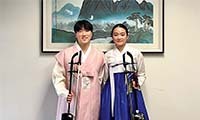
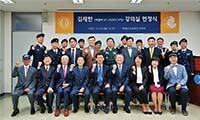

























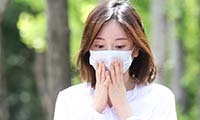
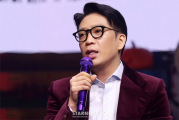

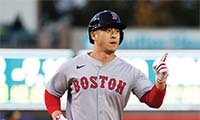














.png)


댓글 안에 당신의 성숙함도 담아 주세요.
'오늘의 한마디'는 기사에 대하여 자신의 생각을 말하고 남의 생각을 들으며 서로 다양한 의견을 나누는 공간입니다. 그러나 간혹 불건전한 내용을 올리시는 분들이 계셔서 건전한 인터넷문화 정착을 위해 아래와 같은 운영원칙을 적용합니다.
자체 모니터링을 통해 아래에 해당하는 내용이 포함된 댓글이 발견되면 예고없이 삭제 조치를 하겠습니다.
불건전한 댓글을 올리거나, 이름에 비속어 및 상대방의 불쾌감을 주는 단어를 사용, 유명인 또는 특정 일반인을 사칭하는 경우 이용에 대한 차단 제재를 받을 수 있습니다. 차단될 경우, 일주일간 댓글을 달수 없게 됩니다.
명예훼손, 개인정보 유출, 욕설 등 법률에 위반되는 댓글은 관계 법령에 의거 민형사상 처벌을 받을 수 있으니 이용에 주의를 부탁드립니다.
Close
x